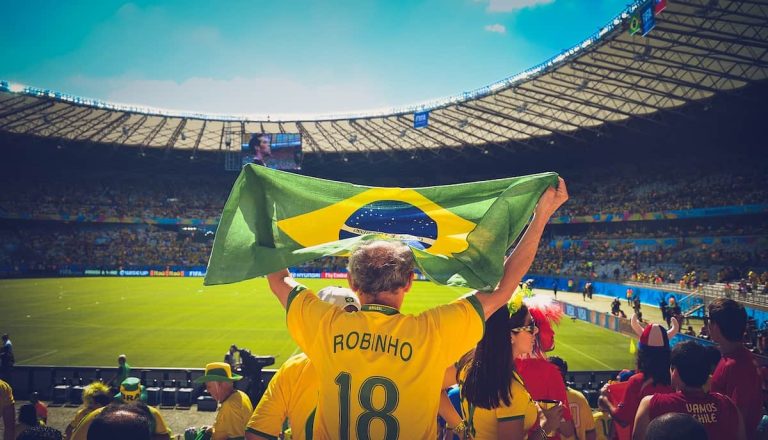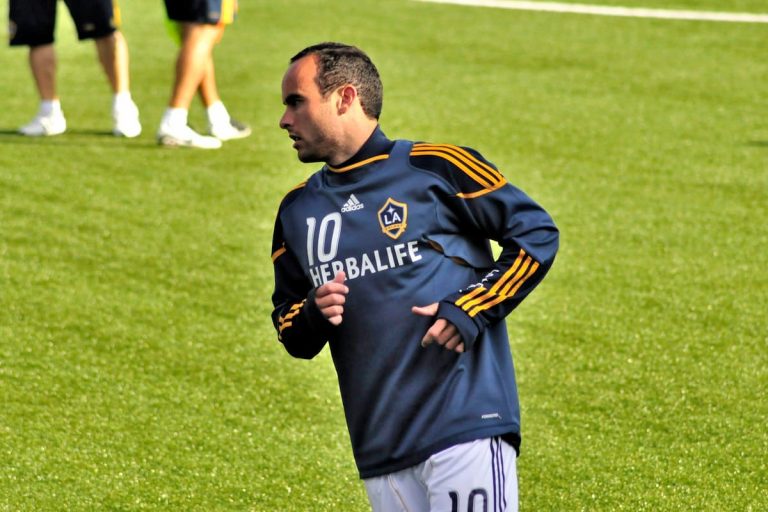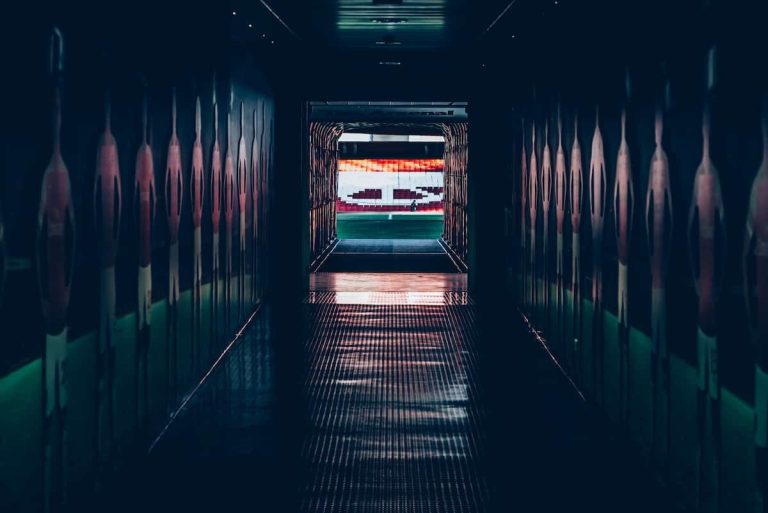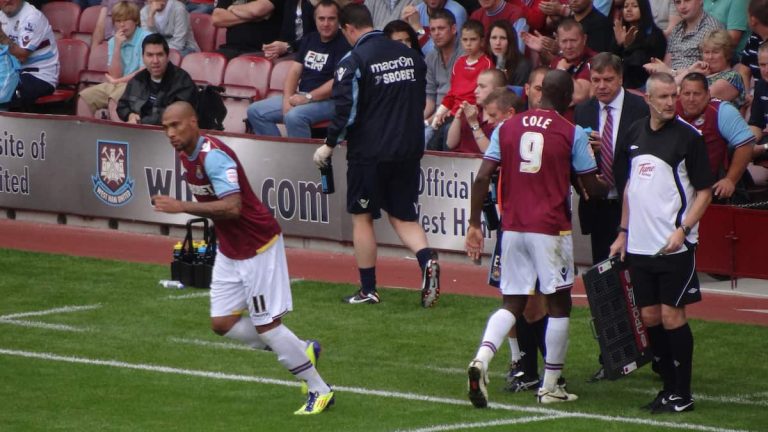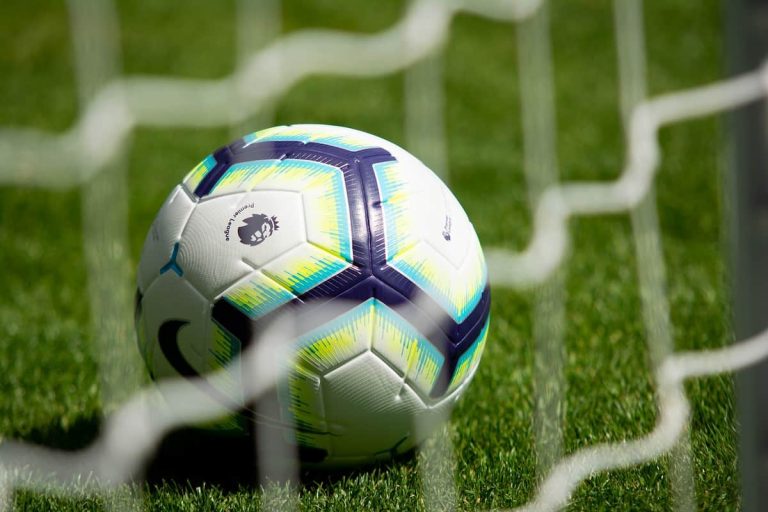How Do Footballers Choose Their Numbers?
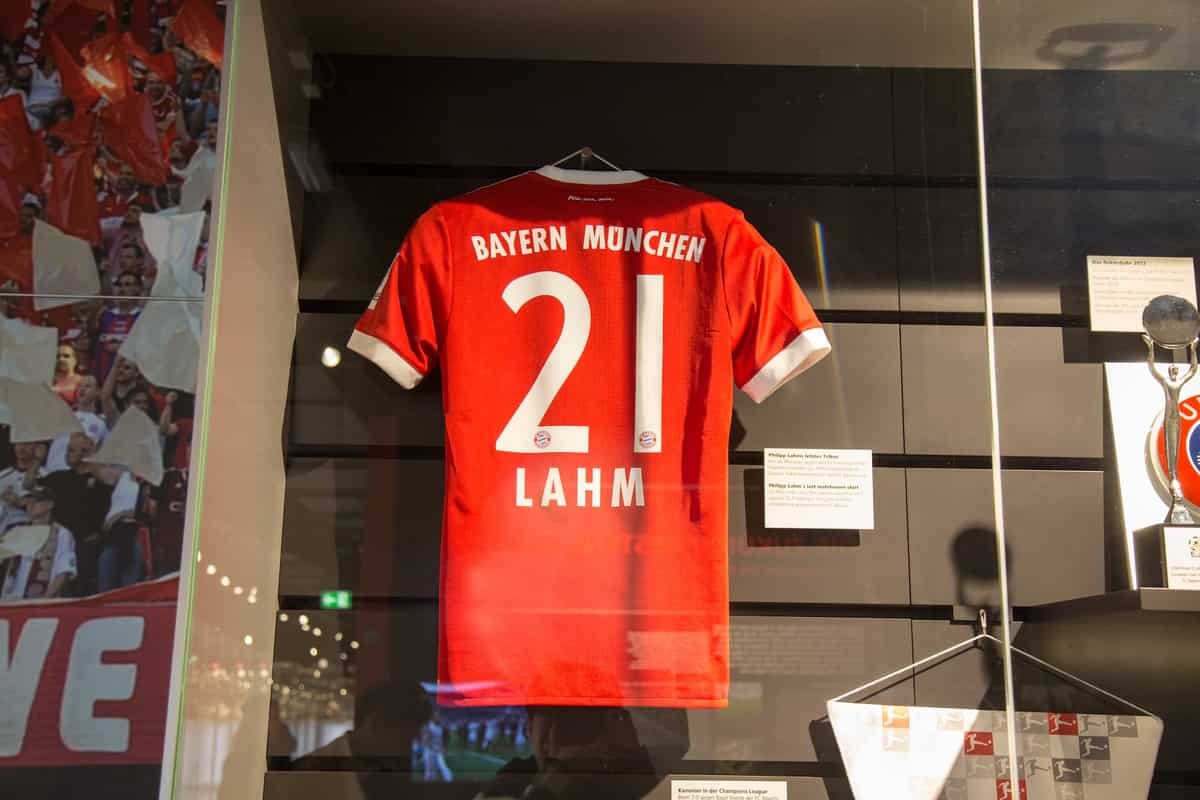
Footballers wear various numbers on the back of their shirts. Some players will stick with the same number for the whole of their career, while others will consistently swap their numbers. So how do footballers choose their numbers? If you’ve ever wondered this, then this Elastico article is for you.
We discuss superstitions, availability, and making statements plus more in this detailed guide. Read on to learn more.
Table of Contents
Why do Footballers Choose Their Numbers?
Footballers choose their shirt numbers for a number of reasons, including:
- The position they play
- Because of superstitions
- Availability of a number
- To make a statement
Position
How do footballers choose their numbers? First and foremost, the position that a player plays is a big factor. In a traditional line-up, numbers 1-11 were reserved for the starting eleven players on the football pitch. The diagram below shows how this might look in a 4-2-3-1 formation:
Players 1-11 diagram (Source – The Elastico)
The lower numbers are reserved for the defenders, meanwhile the higher numbers are traditionally reserved for star players such as midfielders and prized forwards. Although this traditional set up isn’t seen that often in football these days, some players will still stick to it.
Some good examples of this would be Bukayo Saka at Arsenal, who plays as a right-winger, wearing the number 7 shirt and Mohamed Salah at Liverpool, who also plays on the wing and wears the number 11 shirt.
Superstition
When explaining how footballers choose their numbers, we should also consider superstition. As humans, we sometimes subconsciously believe in superstition, and this can affect how footballers choose their numbers.
For example, a player might have worn a certain number on their debut and scored a goal, which makes them believe that the number brings them good luck. The player might then want to wear this number for their club.
A great example of this is when Lionel Messi took the number 30 shirt when he signed for PSG in 2021. In 2004 17-year-old Messi made his debut for Barcelona wearing the number 30 shirt. When he joined PSG, Neymar had already claimed the number 10 shirt, so Messi opted for number 30 instead.
Availability
Another factor that affects how footballers choose their numbers is availability. Any new signings will have to choose a shirt number from what’s currently available. It’s likely that they won’t be able to choose their first choice number, as it will have been already taken by another player.
A high profile example of this was when Cristiano Ronaldo returned to Manchester United in 2021. At the time, Edison Cavani had the number 7 shirt, but Ronaldo wanted it. With Ronaldo’s brand being based around the acronym ‘CR7’, you can understand why.
In the end, Cavani gave up the shirt number, and Ronaldo thanked him for doing so, stating – “I wasn’t sure if it would be possible to have the number seven shirt again. I would like to say a huge thank you to Edi for this incredible gesture.”
To Make a Statement
Another reason why footballers choose their shirt numbers is to make a statement. Here are some good examples of this:
- Trent Alexander-Arnold (Liverpool right-back) – #66
- Wilfried Bony (Swansea striker) – #2
- William Gallas (Arsenal centre-back) – #10
- João Cancelo (Manchester City full-back) – #7
- Samuel Eto’o (Everton striker) – #5
These numbers go against the traditional set-up that we covered earlier in the article. A statement number might mean picking a random number that isn’t particularly popular amongst many footballers, for example, Trent Alexander-Arnold’s number 66.
A statement pick might also be picking a number that is typically associated with a different position to what the player plays. For example, Williams Gallas playing centre-back wearing the number 10 shirt, which is traditionally reserved for playmakers or strikers.


